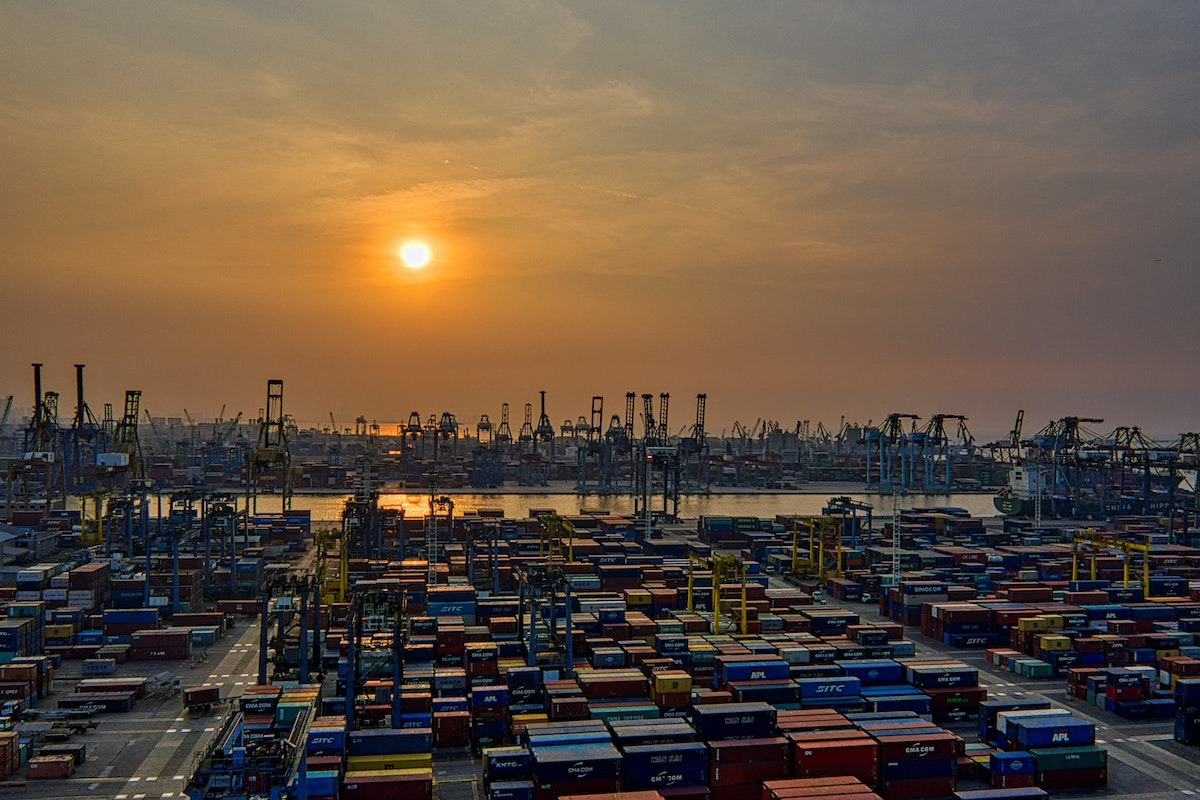- Planning is essential to achieve efficient construction material logistics; this includes conducting inventory assessments and implementing warehouse organization.
- Utilizing inventory tracking and management technology can help construction companies minimize time loss, prevent damage to materials, and prevent waste.
- Investing in efficient material handling equipment and techniques can reduce risks associated with transportation and increase overall efficiency.
- Proper delivery routes must be planned to ensure safety during transportation while minimizing the time and cost of the project.
- Construction companies and drivers must coordinate in order to ensure timely worksite deliveries.
Logistics can be complex in any industry, but construction logistics bring a new level of intricacy and challenge. Construction projects are often sprawling and last for months or years, with countless parts and components needing to arrive at the work site on time and in the correct order.
Given all these challenges, what’s the key to efficient construction material logistics?
Efficient construction material logistics is crucial to project success. Any delays or mistakes in delivery can lead to costly project downtime and errors, resulting in spiraling costs.
Moreover, efficient logistics can help construction companies plan and optimize their material storage, transportation, and handling expenses. The high stakes of construction logistics make it necessary to be planned systematically and thoroughly.
Planning for Efficient Material Logistics
The first step towards achieving efficient construction material logistics is to plan appropriately. To do so, construction companies must keep in mind the following:
Conducting a Comprehensive Inventory Assessment
Site managers should conduct a comprehensive inventory assessment to determine the required materials and establish the delivery schedule. Often, it’s essential to order materials early to accommodate lead times, preventing project delays.
To ensure an accurate assessment, managers should take photographs and measurements of the site and discuss them with their suppliers.
Creating a Logistics Plan Based on Project Requirements and Timelines
After conducting an inventory assessment, the stakeholders can create a logistics plan based on project requirements and timelines. This will ensure the strategy is effective; all the stakeholders should be involved right from the plan’s inception stage.
The logistics plan should outline everything from the material transportation method, the date and time of delivery, and handling on-site.
Collaborating With Suppliers and Vendors To Optimize Material Delivery
Construction companies must foster a good working relationship with suppliers and vendors to avoid logistical mistakes. By working collaboratively, they can optimize material delivery and reduce the chances of any delays.
Suppliers and vendors understand inventory planning, logistics, warehousing, and transportation better than builders, and their expertise can help ease operations after the procurement stage. Working with reliable suppliers ensures builders secure suitable materials, quantity, and quality to complete the project.

Optimizing Material Handling and Storage
Proper material handling and storage are crucial for efficient material logistics. Construction companies should ensure that materials are stored in a location that is easily accessible and well-organized. Proper storage also involves labeling materials and creating a system tracking inventory levels.
By optimizing material handling and storage processes, construction companies can minimize time loss, prevent damage to materials, and prevent waste.
Implementing Proper Warehouse Organization and Layout
The layout and organization of the warehouse are vital for efficient material logistics. Construction companies should ensure that the warehouse is designed with workflow in mind and that items are placed strategically to improve accessibility and efficiency.
Easy-to-follow processes should be in place, and organized packing lists should be used to ensure accuracy in all stages. A well-organized warehouse will improve efficiency, prevent delays, and minimize errors.
Utilizing Technology for Inventory Tracking and Management
Technology has transformed the construction industry, and logistics management is no exception. Inventory management software can help construction companies track inventory levels, monitor usage, and order new materials when needed.
Advanced technology systems such as GPS tracking and wireless communication can help companies monitor the location and status of materials from the warehouse to job sites.
Implementing Efficient Material Handling Equipment and Techniques
Construction companies should invest in efficient material handling equipment and techniques to improve material logistics. This includes investing in machineries such as lift trucks and cranes for heavy materials, using slip sheets or shrink wrap, and palletizing small items.
Transportation and Delivery Strategies
The transportation of materials from the warehouse to the worksite is one of the most critical aspects of material logistics. Construction companies should have a plan in place for safe and effective transportation, which includes:
Choosing the Right Transportation Modes For Different Materials
Selecting the appropriate transportation modes for different materials is crucial. Evaluate the characteristics of the materials, such as size, weight, and fragility, to determine the most suitable mode of transport.
Trucks, trailers, and other specialized vehicles may be required to accommodate specific materials and ensure their safe and timely delivery.
Planning Delivery Routes To Minimize Time and Cost
Efficient delivery routes can significantly impact project timelines and budgets. Construction companies should plan delivery routes optimized for fuel efficiency and can minimize the time spent on the road. Efficient delivery routes can also help minimize transportation costs and reduce the risk of accidents.
Utilizing Personalized Job Box for Safety and Organization
To enhance safety and organization during transportation, consider utilizing personalized job boxes. These customized containers provide a secure and organized way to store and transport materials. Job boxes are designed to withstand the rigors of transportation, protecting the contents from damage and theft.
By using job boxes, you can streamline the loading and unloading processes and maintain the integrity of the materials.
Coordinating With Drivers and Ensuring On-Time Deliveries
Effective coordination with drivers is essential for on-time deliveries. Establish clear communication channels to track delivery schedules and promptly address any unforeseen issues.
Regularly update drivers about changes in delivery requirements or worksite conditions. Implement tracking systems to monitor the progress of deliveries and ensure timely arrivals.

Efficient construction material logistics require early and careful planning, communication, and collaboration between the builder and its suppliers.
Completing a thorough inventory assessment, creating a logistics plan that matches the project’s requirements, and collaborating with suppliers are integral components of achieving effective construction materials logistics.
By implementing this strategy, businesses in the construction industry can optimize their logistics, increase productivity, and boost efficiency while minimizing costs.
